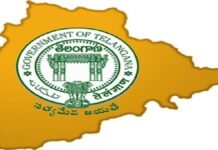Based on the ‘The Taxation and Other Laws (Relaxation and Amendment of Certain Provisions) Act, 2020’, the apex direct tax body CBDT has issued an internal order on exercising the power of survey by tax officers under Section 133A of the I-T Act. Income tax surveys to collect information for scrutiny assessment can be undertaken by the tax deducted at source (TDS) directorate only after approval from senior officers of the ranks of principal chief commissioner or chief commissioner. The CBDT has issued directions in this regard to the officers that wherever any survey action is required by officers of “Central Charge” (involving search/ seizure), international charge, NeAC (National e-Assessment Centre)/ NFAC (National Faceless Assessment Centre), the same shall have to be first approved by a collegium comprising high-ranked officers.
In an I-T survey, tax officers visit business premises of the taxpayer to gather information by way of examination of books of accounts, data stored electronically and also access e-mail communication.
The CBDT guideline further specifies that surveys can be conducted only by the officers of the investigation wing or the TDS charge and “any such action shall be taken only as a last resort when all the other means of verification/obtaining details online/recovery are exhausted.”
The CBDT also directed that the principal commissioner of I-T or commissioner of I-T of the TDS charge or the investigation wing should monitor and ensure that the survey does not go beyond the scope as approved. In accordance with these CBIT guidelines, the income tax department issued new guidelines, with an immediate effect, to restrict intrusive or coercive action for recovery of tax demand by Assessing Officer (AO)/Tax Recovery Officer (TRO).
As per industry experts, the CBDT Guidelines and the resultant corrective measures taken by the IT department shows that the government intends to ensure that only deserving cases are subject to the survey procedure. The approval process and the team-based approach will ensure high level of transparency, functional specialisation, efficiency and improvement in quality of assessment. The new directions will also help check the powers of the officers and create an accountable tax administration system.











